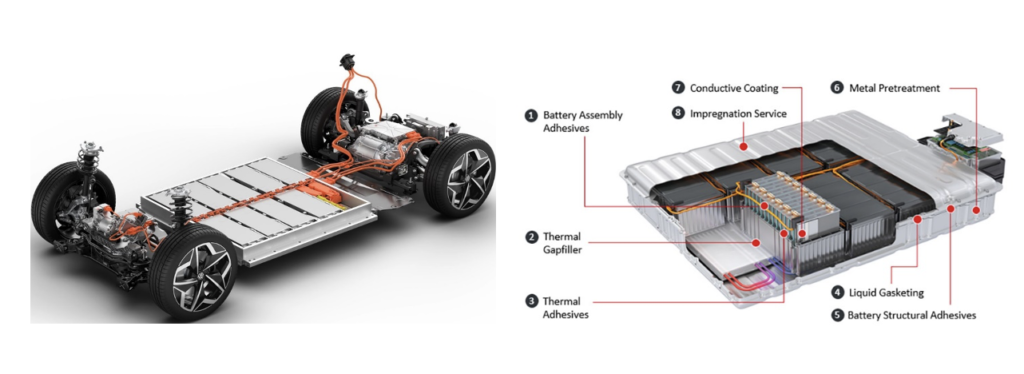As the global shift towards electric vehicles (EVs) gains momentum, the demand for effective and sustainable solutions for recycling EV batteries has never been greater. These lithium-ion powerhouses, while instrumental in reducing carbon emissions, pose unique challenges when it comes to their end-of-life management.
In this article, we will delve into the top 10 challenges faced in recycling EV batteries and the innovative solutions paving the way towards a greener automotive future.
Battery Composition Complexity:
EV batteries are intricate assemblies of various materials, including lithium, cobalt, nickel, and aluminum. Disassembling and recovering these components is a complex task, often requiring specialized equipment and expertise.
Solution: Advanced sorting technologies, such as spectroscopy and robotics, are being employed to streamline the dismantling process. Additionally, research into more modular battery designs aims to simplify disassembly.
Resource Scarcity and Cost:
Some materials, like cobalt, are not only expensive but also relatively scarce. This makes recycling economically challenging, especially if the recovered materials cannot compete with virgin resources in terms of price.
Solution: Research efforts are focused on developing alternative chemistries that rely less on rare and expensive materials, and recycling technologies are becoming more efficient at reclaiming these precious metals.
Safety Hazards:
EV batteries, especially damaged or degraded ones, can pose safety risks due to thermal runaway and chemical reactions. Safe handling and transportation become paramount concerns.
Solution: Robust safety protocols and specialized training for handling electric cars batteries are essential. Additionally, advancements in battery packaging and fire suppression technologies enhance safety.
Volume and Scale:
With the rapid proliferation of EVs, the sheer volume of batteries reaching end-of-life is expected to skyrocket. Scaling up recycling operations to meet this demand is a significant challenge.
Solution: Investing in large-scale recycling facilities and implementing automated processes can help address the challenge of volume.

Energy Efficiency:
Traditional recycling processes can be energy-intensive, potentially offsetting some of the environmental benefits of recycling. Striking a balance between energy input and output is crucial.
Solution: The integration of renewable energy sources and the development of more energy-efficient recycling methods, such as hydrometallurgical processes, are key strategies.
Regulatory Frameworks:
The regulatory landscape for recycling EV batteries is still evolving. Compliance with diverse and sometimes conflicting regulations can be a hurdle for efficient and cost-effective recycling.
Solution: Industry stakeholders, governments, and environmental organizations are working together to establish standardized recycling protocols and regulations.
Battery Health and Condition:
Recovered batteries may vary widely in terms of their state of health and capacity. Effectively triaging and processing batteries with varying conditions is a substantial challenge.
Solution: Advanced diagnostic tools and algorithms are being developed to assess the health of recovered batteries and determine the most suitable recycling pathways.
Environmental Impact:
While EVs contribute to reducing greenhouse gas emissions, the recycling process itself can have environmental implications if not managed properly. Issues like water pollution and emissions must be addressed.
Solution: Closed-loop recycling systems and wastewater treatment technologies are being implemented to mitigate the environmental impact of battery recycling.

Market Demand for Recycled Materials:
Creating a robust market for recycled battery materials is essential for the economic viability of recycling operations. Ensuring a consistent demand for these materials remains a challenge.
Solution: Collaborations between EV battery manufacturers, automakers, and recycling companies can help establish a steady market for recycled materials.
Consumer Awareness and Education:
Building awareness among consumers about the importance of recycling EV batteries and the availability of recycling options is crucial for creating a sustainable end-of-life cycle for batteries.
Solution: Educational campaigns and incentives for battery recycling can play a vital role in increasing consumer participation.
Conclusion:
Addressing the challenges of recycling EV batteries is integral to achieving a sustainable and circular economy.
Through technological advancements, regulatory frameworks, and collaborative efforts across industries, the transition towards greener transportation can be accelerated, ensuring a brighter and more sustainable future for generations to come.
